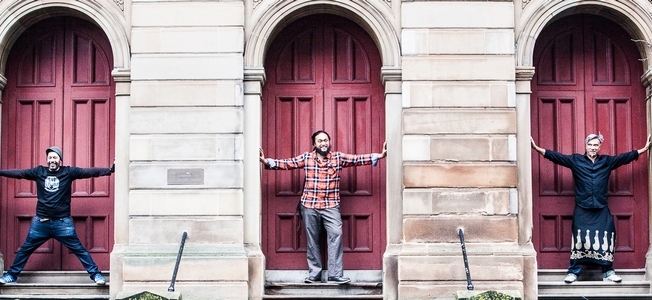Trinity Roots aren’t the only Kiwi acts on the Queenscliff lineup – they’ll join the likes of Thomas Oliver, Estére and Hollie Smith. Of the latter, Lemi says, “She’s a really great soul voice, and her band’s great to check out”.
As a group, Trinity Roots formed in 2001 and have toured across New Zealand numerous times. Given its indigenous origins, bringing their music to Australia is something of an experiment.
“That was our first real tour we did over there this year,” says Lemi. “So we didn’t exactly know what to expect. We had a few friends in the industry – the Australian music industry – saying that maybe our sound would sit well with the surfie community, the people on the coast.
“It seems like the audiences [were] really tapping into our wave length at the time – it was really good to pick up on those types of energies. Melbourne was also really great, and was a bit more of a city vibe. I guess there are a few parallels between Melbourne and my hometown here in Wellington, in terms of quite a good music scene and quite a strong art scene. So that was really, really good to play Melbourne as well.”
Lemi was asked to join the band just over two years ago, and he was initially hesitant about entering the established group. These reservations quickly passed, however, and his chemistry with vocalist/guitarist Warren Maxwell and bassist Rio Hunuki-Hemopo is evident on the album Citizen, which came out earlier this year.
“It was a turning point for my life as a musician,” he says. “I was slightly nervous about the idea of it, but as we started rehearsing, singing and working on material, I realised what the benefit of joining a really established entity like Trinity is. We like to sing about values and society and just appreciating things other than material objects, material aspirations. So talking true relationships and not being so locked into the internet. You know, developing personal relationships with people on a physical level, that sort of thing.”
This message transcends their recordings to permeate their live shows. “We like to take our time with a lot of the jams that we play. Some of the songs have typical arrangements in terms of verse-chorus things happening. Also, we do like to stretch those forms out, and let the sonic aspects and the more musical aspects in on that journey.”
In a nutshell, Trinity Roots refuse to be put into box, and that’s made clear by their music. “It’s sort of a linear journey, I suppose – we like to transport people.”
BY JESSICA MORRIS







